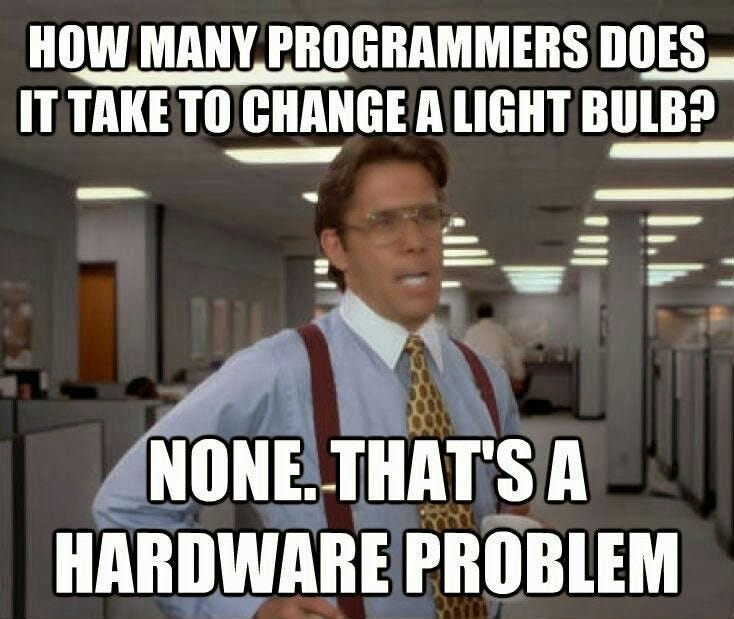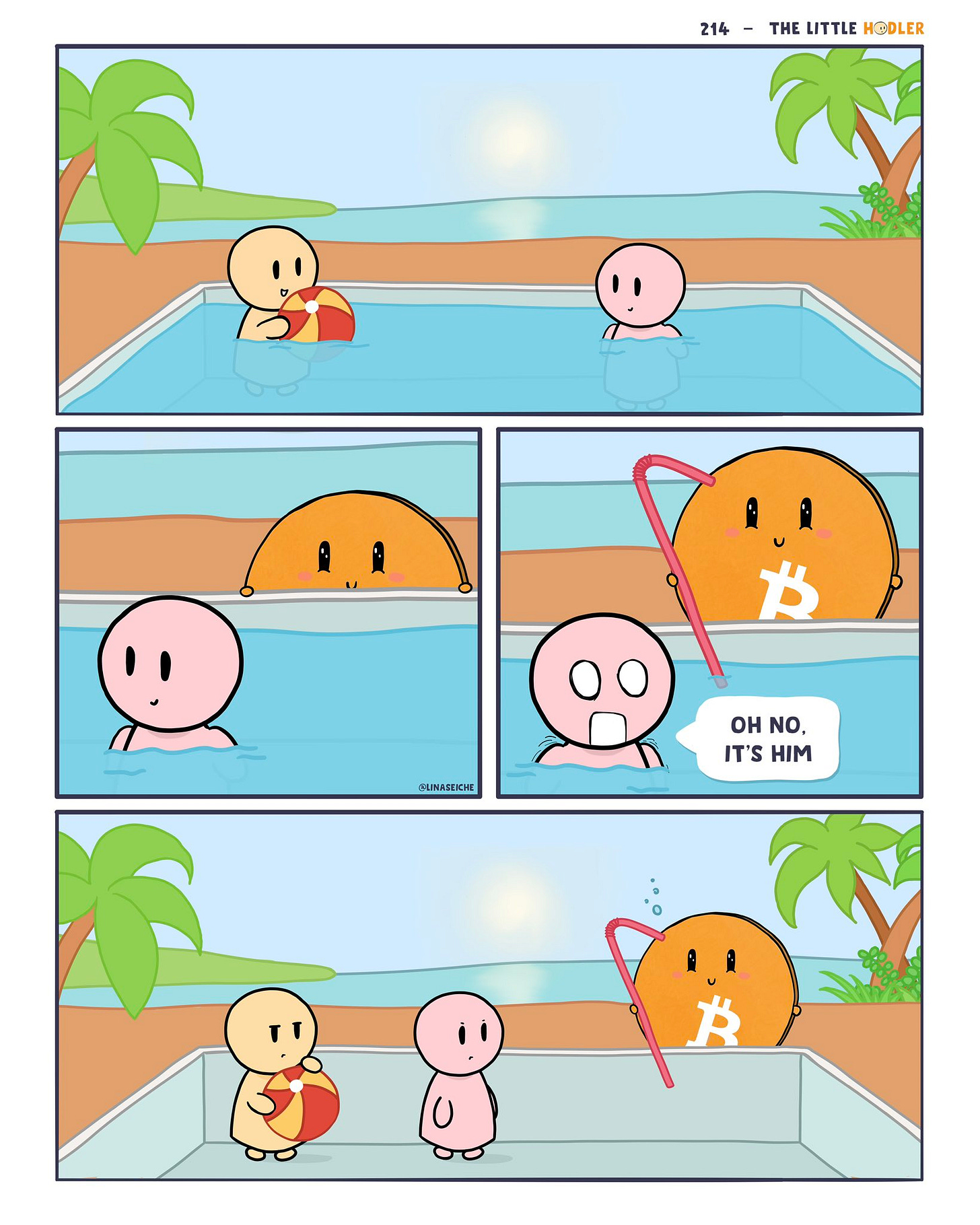Interesting Stuff
Solow Paradox - Scott Locklin asks a very intriguing question about whether computers and software actually help in many of the places where it’s deployed. The example he brings up is that of CAD design, which is software used for architecture, vehicle design and much more. Apparently, there are a bunch of tradeoffs to not having physical models which have led to much less efficiency and it’s so common that it has a name, the aforementioned Solow Paradox. There’s definitely some truth to this as the many large scale IT infrastructure failures in many industries attest. But much of it is fiat induced, where some centralized bureaucrat fits square pegs into round holes.
Demise of the ACLU - Remember when the ACLU would actually defend free speech? They don’t anymore and this is a long read on the organization’s history and the major pivot they made in the early 2000’s to be way more in line with Democratic party priorities, which sadly relegated the Bill of Rights. As is true with any organization, the main impetus seems to have been the money. That is, the donors to the ACLU demanded these changes, and these changes are what it got. In a sense fiat money makes organizations like this dependent on staying current because they don’t have a good savings vehicle and live hand-to-mouth like most organizations.
Elite Smugness - The ostensible reason for this article is a book review, but really, it’s about the general tone of not just the book, but the type of author who writes such books. The article is from a liberal publication, but it still manages to identify the general smugness with which characterizes a lot of liberal writing. As the author states, the tone is professorial, as if the readers are intellectual and moral inferiors. The culture of condescension that she identifies is one that does not go over well in a free market. I submit that it’s something that only comes about when certain groups are subsidized into rent-seeking positions. In other words, fiat ruins intellectual politeness.
What I'm up to
FROST/MuSig/Taproot Class - I’m holding a 1-day class in Austin January 8th to teach these very interesting topics. This class will be in the style of my Programming Blockchain classes, which are based on coding the concepts as you learn them and with real transactions on testnet and signet. As this is my first time teaching this specific class, I’m giving a 33% discount from what will be the rate in subsequent classes for this course.
MemeFactory - I was on this popular podcast to talk about the new book and answer some questions about some of the recent events in Bitcoin. I also did a fake ad read, which I found hilarious. One thing I verbalized here which I don’t know if I’ve done in the past is how high time preference generally leads to excess debt spending. This in turn leads to longer debt slavery, which unfortunately is what so many people are now experiencing.
Programming Blockchain Dubai - I will be running my Programming Blockchain seminar in Dubai in February around the Bitcoin Oasis conference (Feb 7-9)! I haven’t run these publicly for over a year since I was traveling. The course covers the Bitcoin protocol from elliptic curve cryptography to transaction structure and proof-of-work calculations. If you are wanting to learn the intricacies of layer 1, apply today!
Unconfiscatable - I’ll be at this conference later this week. I’ll have books on hand to sign, so please stop by and say hi if you’re around!
Nostr Note of the Week
What I’m Promoting
Unchained Capital is a sponsor of this newsletter. I am an advisor and proud to be a part of a company that’s enhancing security for Bitcoin holders. If you need multisig, collaborative custody or bitcoin native financial services, learn more here.
Bitcoin
Bitkey Recovery Model - The much anticipated hardware wallet from Block has published a paper on the various ways in which you can recover your Bitcoin from the wallet. The first thing that strikes me as I read through the paper is that there are a lot of different ways to recover your funds. There is a cloud backup, a way to recover using your friends to help you and a way to just leave the Bitkey system altogether. Each has a specific use case and whether you agree with their design or not, it’s definitely different than other hardware wallets.
IPv6 Bitcoin Certified - The paper introduces using the Bitcoin blockchain to secure the public key associated with an address. The ostensible reason for this is because the Cryptographically Generated Address standard, which requires proof-of-work to generate IPv6 addresses. As the paper argues, the proof-of-work can be hard and the computational resources needed to compute it may take a long time. Instead, they propose that the public key be registered in a Bitcoin transaction, saving the computing resources. Of course, that’s a tradeoff since now you have to pay fees, but the idea itself is an interesting way to cryptographically secure an address.
tbDEX live in Africa - The protocol for exchanging Bitcoin for local currency has its first adopter in Yellow Card, an African exchange. It’s a cool project meant to be a decentralized alternative to exchanges, using decentralized identity and credentials instead. More robust DEXs would be a welcome improvement as so many people in developing countries depend so much on centralized exchanges for their off-ramp.
Lightning
Hardware Wallets + LN - BitBox02 has a feature where the Lightning keys are derived from the seed phrase stored on the hardware device. The main idea is that the Lightning wallet app would still store the private keys but backup can be the same as the on-chain wallet. This seems like a very useful feature, and as long as the keys are properly derived and don’t risk the cold storage part of the wallet, seems like a reasonable way to have solid backups.
Is Lightning Doomed? - Shinobi tackles this very provocative question by going through the history of Lightning and showing that a lot of the FUD coming Lightning’s way lately was anticipated as early as the Lightning whitepaper. As he points out, the way Lightning is getting used particularly with so many custodians is not exactly the way it was envisioned at the beginning, but that’s okay. That was true of the blockchain as well. In a sense, we’re seeing what tradeoffs make sense for users in real time.
Papersats - This is an NFC card that is a lightning payment wallet. It’s an interesting concept and far closer to a credit card in form than anything else I’ve seen. The idea is that you can see the balance on your phone, but mainly, you’re using the card in a way that’s much easier and faster than your typical lightning wallet. The tradeoff is that you don’t get to verify as much. The backend is using lnbits, which means that you need an Uncle Jim to set up a node for you. I really like the NFC method for payment and hope this catches on.
Economics, Engineering, Etc.
Process of Dollarization - Peter St. Onge describes what is likely to happen in Argentina as Javier Milei looks to end their central bank. As he points out, we have two very good examples of what may happen in Ecuador and El Salvador, who dollarized around 2000. Generally, inflation goes down, unemployment goes down, productivity goes up and growth goes up. It’s a clear win for everyone but banks, who now have to contend with real market forces instead of relying on central bank bailouts.
The Downfall of Gemini - This is a fascinating story of what exactly happened with the Winklevoss exchange, particularly with respect to their relationship to Genesis, the DCG firm at the center of the crypto lending market which blew up the altcoin ecosystem last year. What was clear in the article is that there is significant temptation for altcoin exchanges to do more and more immoral things and that risk management is pretty much non-existent. Sadly, this seems to be a well worn path and I don’t expect such exchanges to survive all that long given the scrutiny that they’re all receiving.
Unchained Study - The survey was of 400 investors in the US between the ages of 18 and 78. There were a lot of interesting and surprising results. For example, 1 in 4 Americans own Bitcoin including 55% of those surveyed! This is, of course, a massive constituency, and the implications, politically and otherwise, are enormous. Other data from the survey include the fact that a plurality of those surveyed think Bitcoin will outperform cash, gold and the S&P500. The sentiment is definitely on the upswing as we enter 2024.
FutureBit - This may be vaporware for all I know, but this seems like an idea whose time has come. It’s a miner that’s meant for being used at home, with the idea that there can be some hash rate available to the retail Bitcoin holder instead of concentrated in large data centers. ASICs have a history of being pretty hard to deliver, and this is probably not an exception, but there’s demand for this type of device, one that’s more optimized for reliability and quietness than all out hash power.
Quick Hits
Microstrategy keeps stacking - Another 16130 BTC for the company, for a total of 174,530. Notably, this was financed with new stock issuance.
Ocean - This is the revival of Luke Dashjr’s old mining pool, but with new investors, including Jack Dorsey. Despite having a tiny percentage of hash, they have already found a block.
Mining and Energy Paper - Nic Carter, et al, have published this paper as part of the counteroffensive against the energy FUD. Of course, this is probably the 100th such article, none of which have reduced the FUD much.
Coinbase Ad - Truly an epic commercial that speaks to the economic realities of Millenials. Too bad they’re focused so much on altcoins and conflate BTC with crypto.
Demand - Another mining pool starts using Stratum V2.
Fiat delenda est.









The ACLU was always one part communist front. What changed is that the commies gained enough power that they could become the ones suppressing speech.